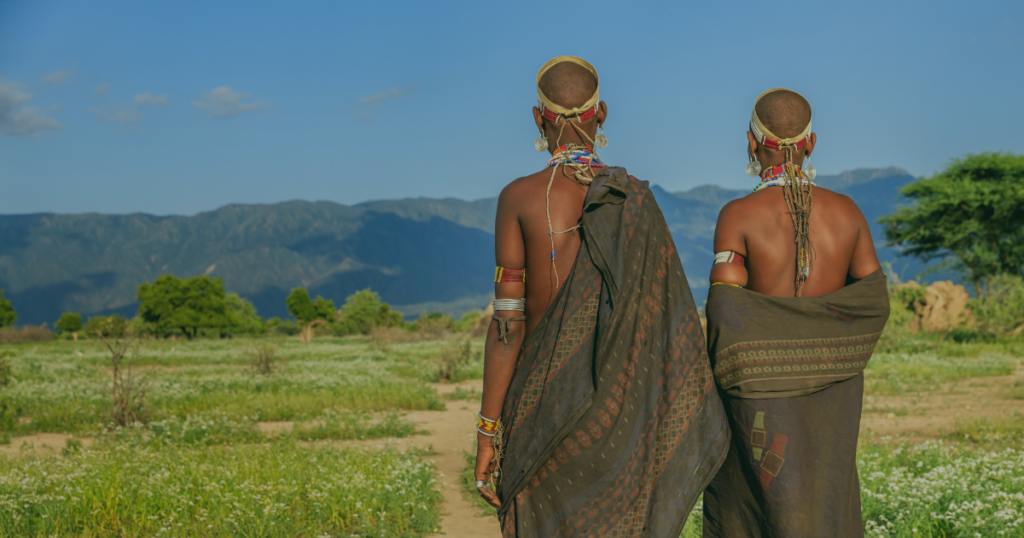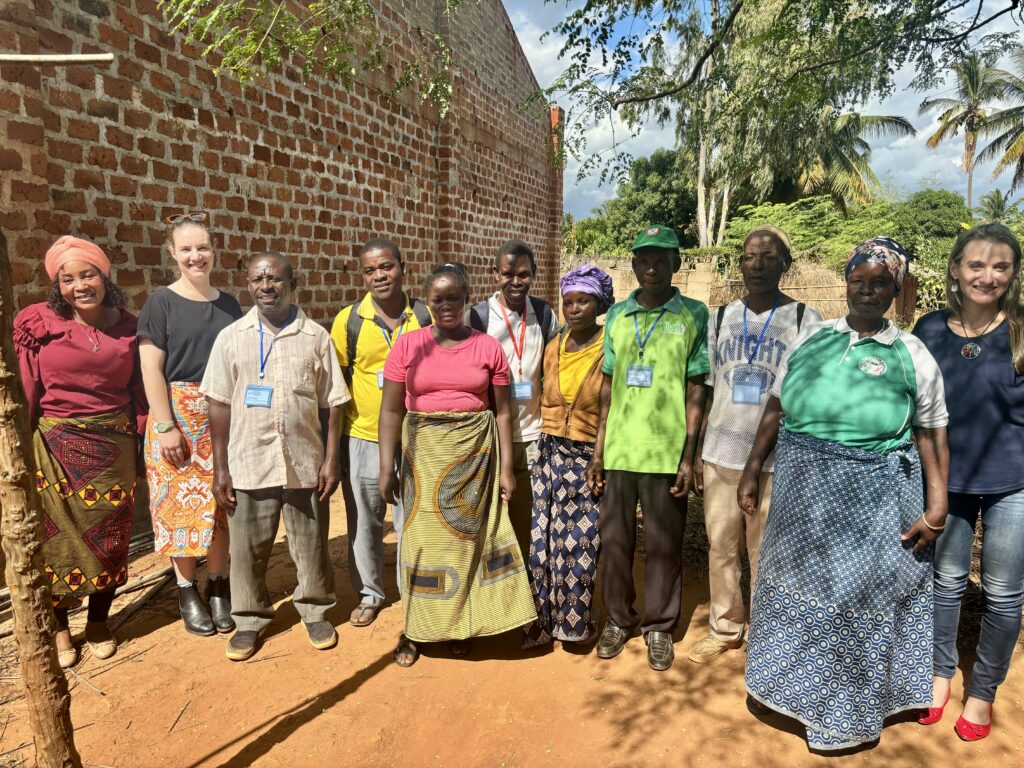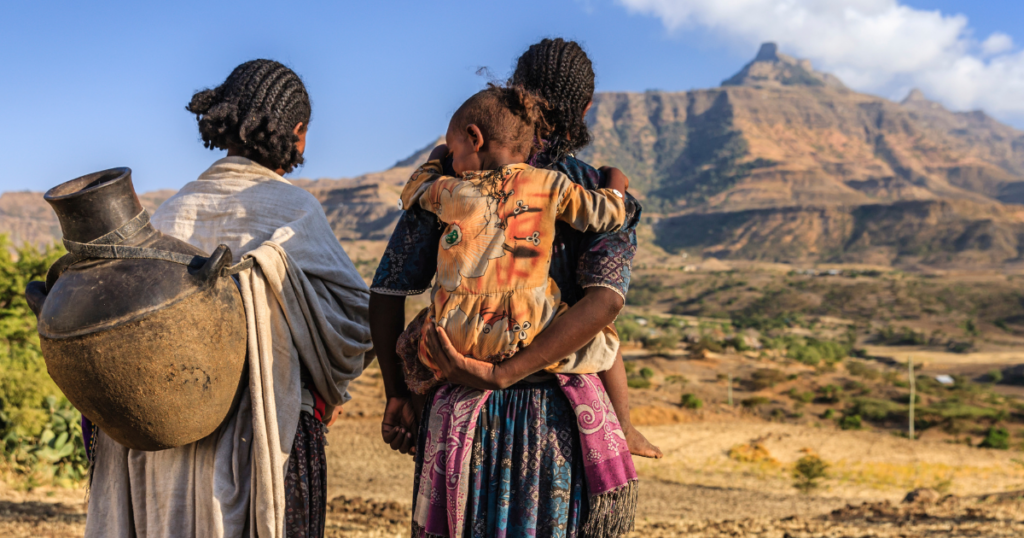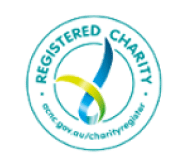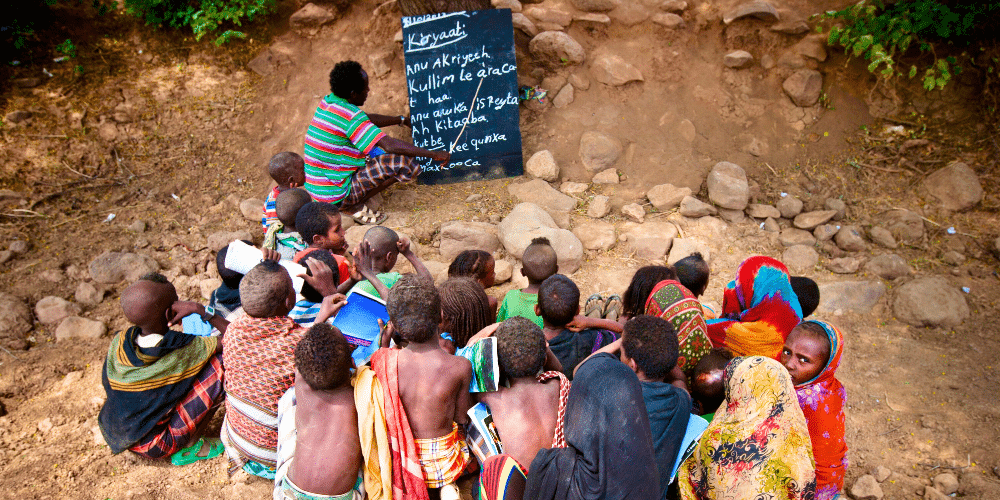
Where we Work
Ethiopia
123 million
Population
175/191
HDI Ranking
3.2
Mean Yrs of School
34/1000
Infant Mortality
Land-locked Ethiopia is part of the Horn of Africa in the continent’s northeast and shares borders with Sudan, South Sudan, Eritrea, Djibouti, Somalia and Kenya.
A country steeped with historical importance, it is home to one of the oldest civilisations and nine UNESCO World Heritage Sites. The history of the coffee bean can be traced back to Ethiopia’s ancient forests.
The Afar Region in the northeast of the country is one of the toughest places in the world to live and extends into Djibouti and southern Eritrea. The region has some of the hottest inhabited places on Earth, with temperatures exceeding 50 degrees. Crops cannot be grown, so the Afar people live a traditional semi-nomadic lifestyle, moving their goat and camel herds in search of food and water.
The spread of disease is more likely as people move across the country, and lack of access to maternal and child health care in the region means high maternal and infant mortality rates, and poor health and nutrition for surviving children. Most women give birth in their villages with no medical attention. Children are also vulnerable to diarrhoea, measles, malaria and HIV AIDS.
We have been working with our partner, the Afar Pastoralist Development Association (ADPA), on a variety of projects to improve the development and well-being of the Afar people. With a particular focus on vulnerable women and children, they have developed mobile health and vaccination programs, livelihood projects, water provision and harvesting resources, and children’s education programs.
Ethiopia, one of Africa’s most populous nations, boasts a strong and diverse cultural heritage. However, recent humanitarian crises have wreaked havoc on its local communities. To help them recover from the lasting effects of civil conflict and hardship, the Ethiopian Anglican Church Social and Development Organisation (EACSDO) is providing sustainable support to communities in Northern Ethiopia.
The Tigray region, in Northern Ethiopia is the centre of EACSDO’s response efforts. The most recent conflict began in November 2020 after an extended period of complex escalating tensions and resulted in 2.2 million people becoming internally displaced and in need of critical assistance. Due to the conflict, a total of 5.2 million people in the country required food and non-food items.
Tigray’s infrastructure was devastated by the conflict, with 75% of all medical facilities destroyed or looted. All schools and banks in the area closed. The conflict compounded pre-existing food insecurity from ongoing droughts and the movement of humanitarian supplies became challenging.
The conflict ended in 2022, but displaced peoples and a devastated regional community still feel the effects.
The Ethiopian Anglican Church Social and Development Organisation (EACSADO)
The Ethiopian Anglican Church Social and Development Organisation (EACSADO) is a newly established partner of Anglican Overseas Aid, dedicated to addressing the urgent needs of vulnerable communities in Ethiopia. Rooted in the Anglican Church’s mission to provide holistic care, EACSADO focuses on sustainable development initiatives, including improving access to clean water, enhancing food security, and supporting education and health services. Their work is particularly vital in regions facing challenges such as drought, poverty, and limited infrastructure, where they aim to empower communities by promoting self-reliance and resilience. Through their collaboration with Anglican Overseas Aid, EACSADO is expanding its impact, ensuring that more people in Ethiopia receive the support they need to lead healthier and more prosperous lives.
